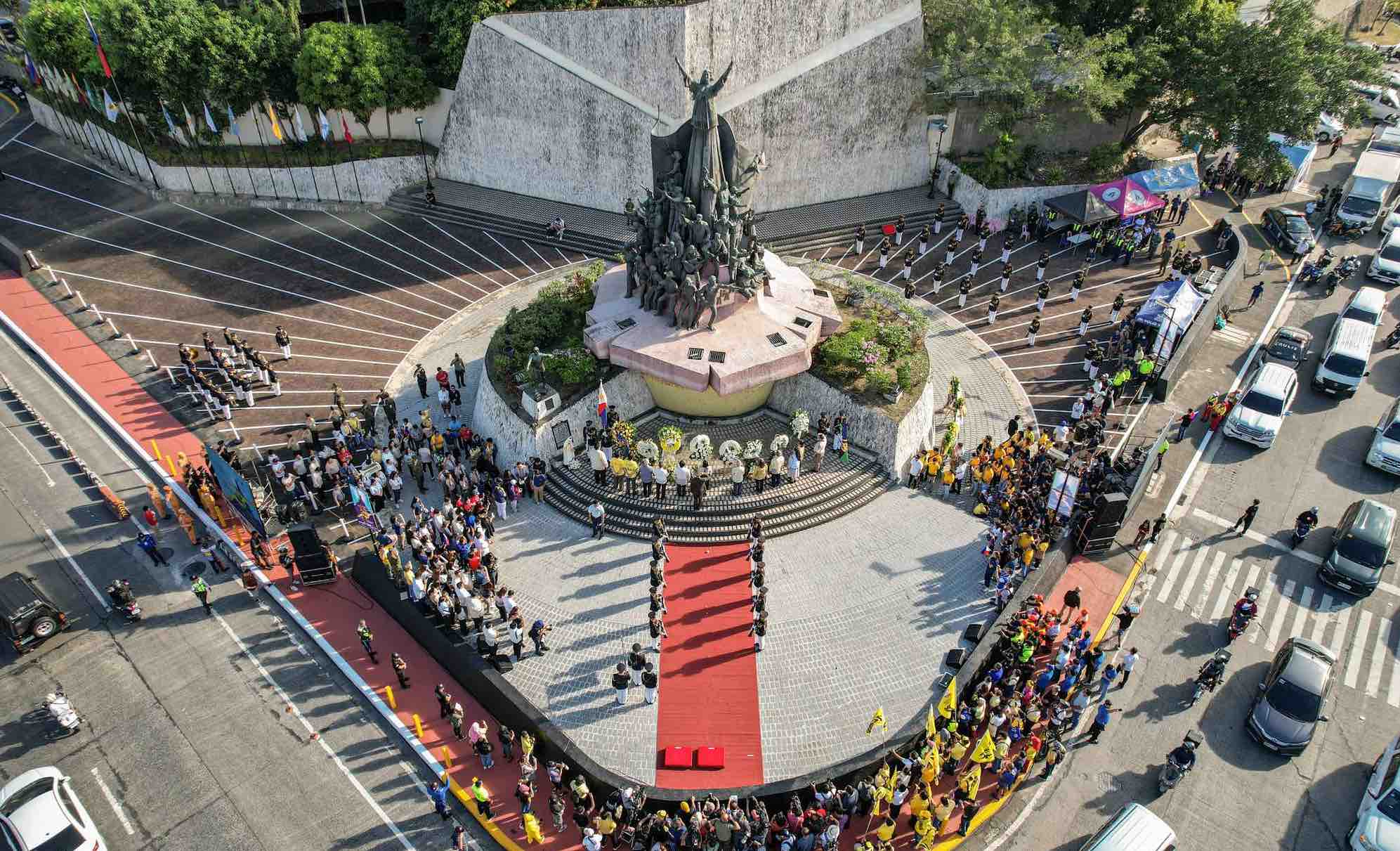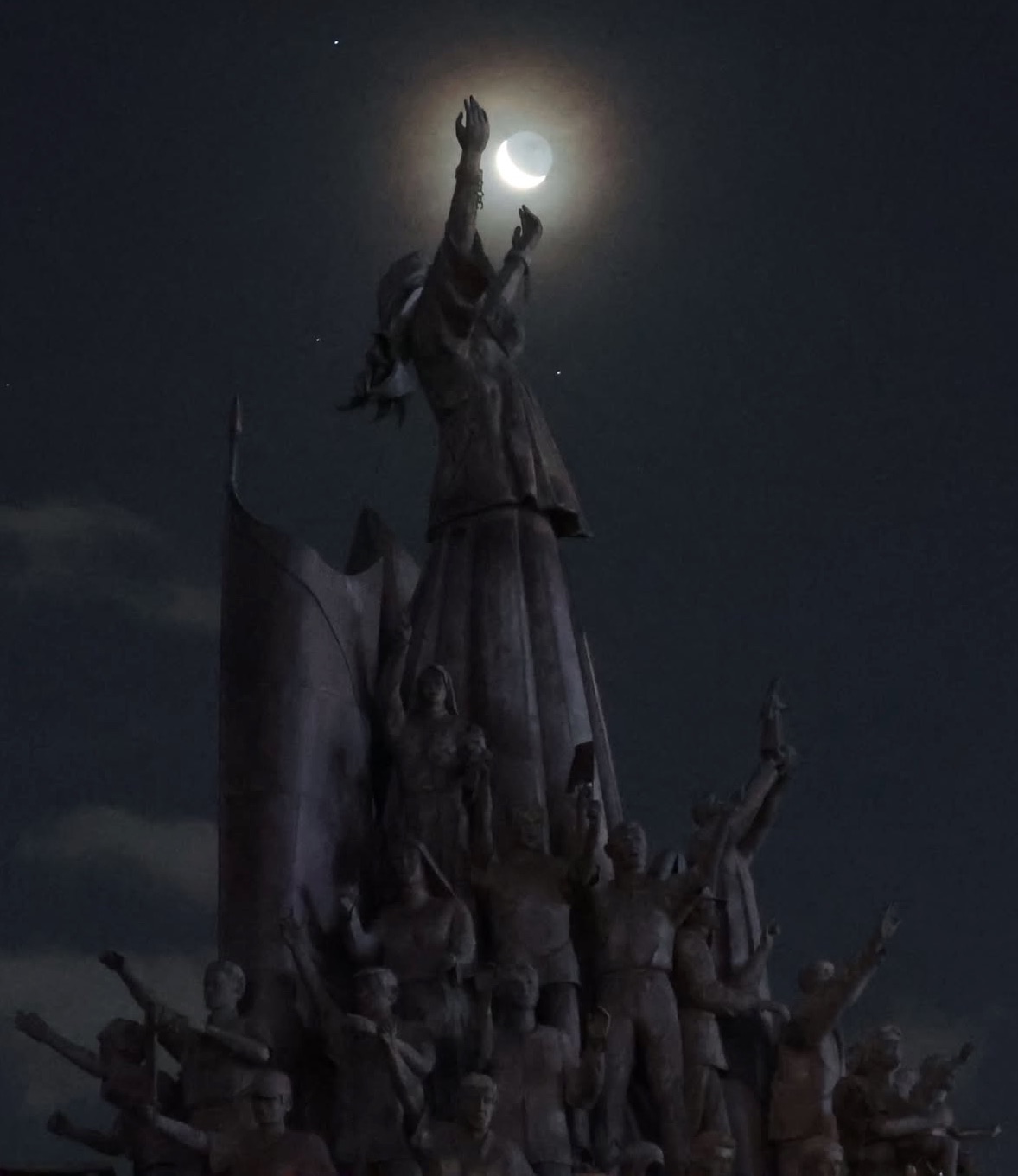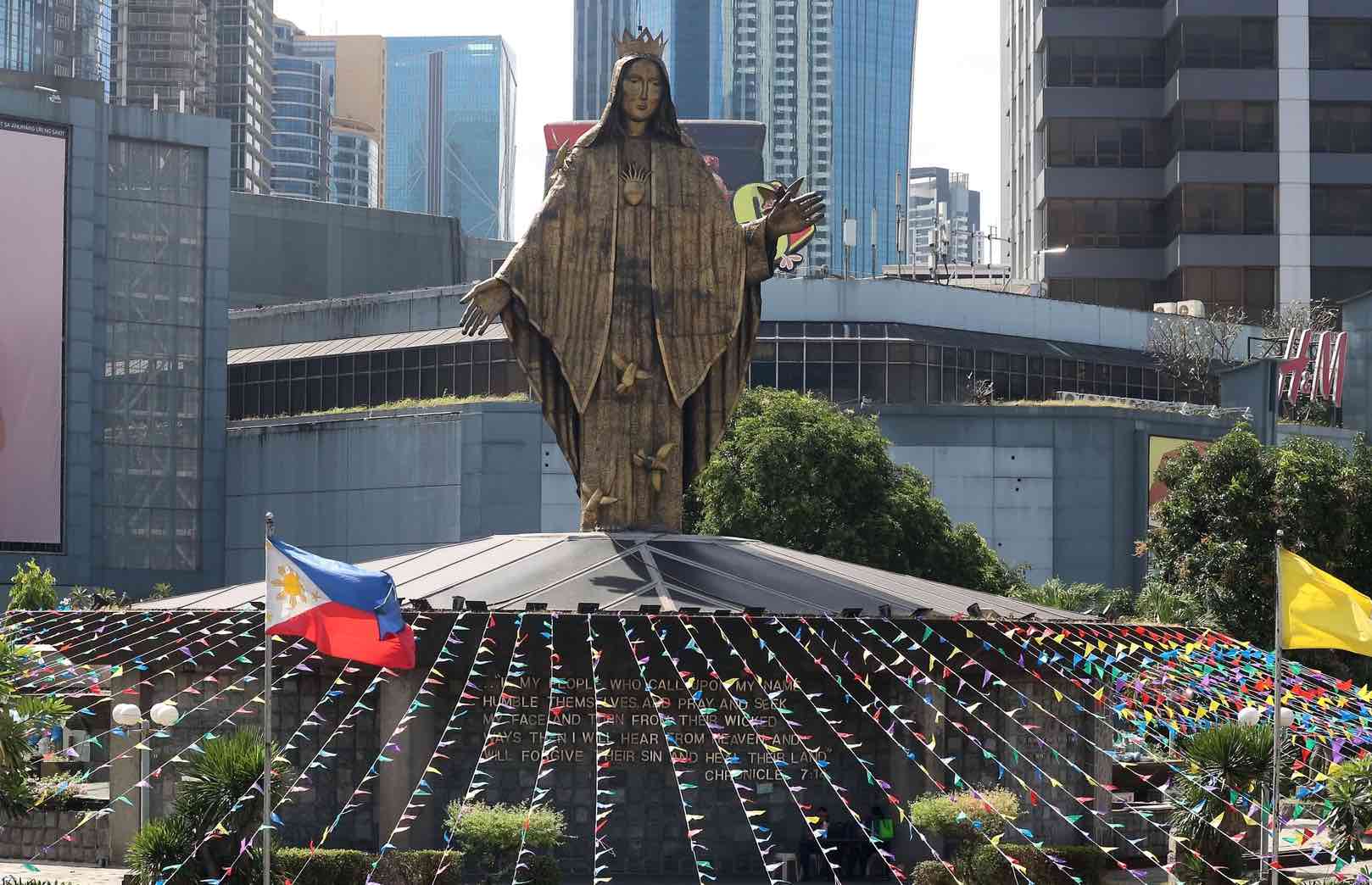[OPINION] Remembering EDSA is our responsibility
EDSA holds many meanings to different people. But when I first heard about it in childhood, its anniversary was nothing but a holiday—something so special that school just had to be out of session.
My parents took it upon themselves to imbue Feb. 25 with significance. They’d recount stories of marching in the streets as newly anointed adults, radicalized by the death of Ninoy Aquino. Once, we went to the Tarlac museum erected in his honor, where I hesitantly posed beside a framed photo of his open casket. Most of the time, we’d stay at home on that day, watching the specials airing on TV or reading op-eds in the paper very similar to this one.
President Bongbong Marcos declared the 39th anniversary of the People Power Revolution a “special working holiday.” After fueling backlash from people who saw the move as a tactic that could erase the hard-won victory of the Filipino people versus his father's dictatorship, Malacanang noted it was not an attempt to do so.

Filipinos find themselves in a fugue state. Our sociopolitical context can only be characterized by collective amnesia and cognitive dissonance. We claim to espouse the same ideals found on those streets in 1986: We thirst for freedom, uphold democracy, and protest injustice. An SWS survey from 2023 shows that 61% of respondents believe that the spirit of the EDSA Revolution is still alive, while 57% think commemorating the event remains important.
But it’s impossible to reconcile these beliefs with our eagerness to welcome back the family that robbed us of these fundamental rights. Research has found that positive perceptions of the late dictator are strong predictors for choosing Marcos Jr. in the 2022 elections. Disinformation networks fuel this false nostalgia. In a 2022 interview that aired on ALLTV, he said martial law was "necessary" during his father's regime due to a communist insurgency—but not his family's greed. While he acknowledged that there were human rights violations at the time, he argued that the abuses "occurred like in any war."
Younger generations have attempted resistance, armed with the cautionary tales passed down by our elders. We, too, have seen a Marcos go up against a beloved widow for the highest seat of power. But since 2022, a lot of us have grown disillusioned. In the same SWS survey, only 5% of Filipinos feel that all of EDSA’s promises were actually fulfilled. Political dynasties, state-sanctioned violence, and high cost of living persist. Add to that the fact that we’ve learned the Aquinos are not infallible people: that their elite rule and "incompetence" upon assuming leadership have also caused the suffering of the masses. Without personal experience to keep us emotionally invested in the cause, the easier option for many has been to stop caring completely.

We can’t rely on the administration for solutions for at least the remainder of Marcos Jr.’s term. How, then, do we fend for ourselves? How do we keep one another from forgetting? Sectors of society need to come together to preserve the value of People Power, starting with the obvious: Suspend classes for Feb. 25 again. The University of the Philippines Diliman and Cebu, University of Santo Tomas, the Edsa-Ortigas Consortium of Schools, and Adamson University, among others, have declared holidays of their own and condemned this not-so-subtle historical distortion.
My alma mater Ateneo de Manila University has notoriously refused to follow suit for unknown reasons. But it succeeds in facilitating different activities like talks, exhibits, and celebrations of the Holy Mass to “allow unhurried reflection on the significance of EDSA 1986.” Hopefully, other institutions allow for similarly productive discussions.
In an article by the Daily Tribune, UP assistant professor Kerby Alvarez said that of the textbooks he reviewed, the topic of martial law and People Power only occupied seven to 11%. Teachers would simply skim through them in favor of preparing for the final exams, leaving out the human rights violations committed by the Marcoses.

Citizen-run initiatives have emerged in response to the shortcomings of the education system, such as the Martial Law Chronicles, Developh’s Martial Law Index, and Project Gunita. Children’s book authors are taking on the challenge of introducing these dark days to younger audiences: Isang Harding Papel by Augie Rivera and Ito Ang Diktadura by Equipo Plantel succeed on this front. Martial law victims have been invited to Human Library events, where participants can approach and speak with them about their chilling experiences. What better way to set the record straight than to hear the truth from those who lived to tell the tale?
That’s why it’s also important for families, especially those with firsthand anecdotes, to keep the memory of EDSA alive. Perhaps the story has a stronger chance of standing the test of time when it’s no longer represented as a war between two political factions—when we see it not as the Marcoses versus the Aquinos, but the Filipino people in favor of freedom. This isn’t to underestimate the work done by key opposition figures, but to drive home the point that the People Power owes its success to the heroism of the ordinary Filipino.
EDSA holds many meanings to different people who showed up on that day. For some, it was divine intervention: The Catholic Church shepherding their flock into a fight that ended with no bloodshed sounds like the stuff of miracles. To others, it’s mutual support, the potential of people from all walks of life to express dissent and demand accountability. It’s shedding the fear that came with years of suppression, in hopes that a better life will come out of it. Surely, it's not something that happens on just any ordinary day. What an injustice it would be to treat it as such.
Disclaimer: The views expressed in this article are those of the author and do not reflect the opinions of PhilSTAR L!fe, its parent company and affiliates, or its staff.


